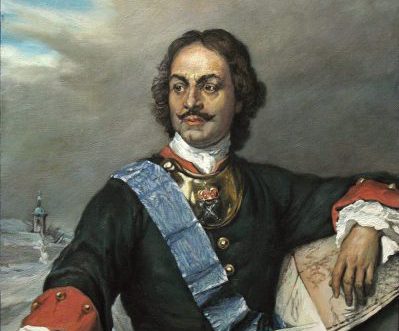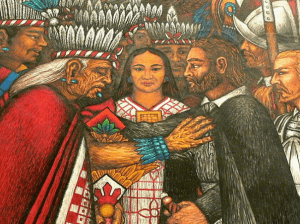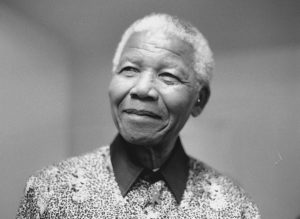Russian historian Nikolai Pogodin once said, “The Russia of today, that is to say, European Russia, diplomatic, political, military, commercial, industrial, scholastic, literary—is the creation of Peter the Great. Everywhere we look, we encounter this colossal figure, who casts a long shadow over our entire past.”1 Peter I, also known as Peter the Great, was the tsar and emperor of Russia from 1682 to 1725. He played a crucial role in westernizing Russia by changing its economy, government, culture, and religious affairs.2 By doing all of this, Russia was able to expand and become one of the most powerful countries in the eastern hemisphere.

Peter Alexeyevich was born in 1672 and was the son of Tsar Alexei Milhailovich of Russia. At the age of ten, Peter and his half-brother Ivan V both shared the title of tsar after their father had passed away. When Ivan died in 1686, Peter became the single ruler of Russia. Around this time, he began taking great interest in sailing, meeting foreigners, and military command.3 In 1695, Peter fought against the Turks, and after seeing how weak his own navy was, he sent several of his people to European maritime powers to study shipbuilding and navigation. Just two years later, Peter himself traveled around Europe, learning about Europe’s customs, military, religion, and economy. Fascinated with the foreign customs he encountered, he returned to Russia and implemented aspects of European culture into his own country.4
Upon returning to Russia, Peter began enforcing changes to break away from old Russian traditions. He ordered all of the men in the country to shave off their beards, forcing anyone who kept their beards to pay an extra tax. The old Russian calendar was replaced with the Julian calendar that the rest of Europe had adopted.5 Even Peter’s portraits were decorated with western imagery, drawing inspiration from the Romans in its allegory to emphasize his strength and power. Peter also established a new government hierarchy, allowing lower class citizens to rise in rank and become nobles. Whenever Peter was away from Russia, he would have a senate that he appointed to oversee all judicial and administrative functions. The person in charge of the senate was given the title “ober-procurator,” and was a direct agent of the tsar. In 1717, Peter created several branches in the government that specialized in managing the country’s economy, navy, and foreign affairs.6 Additionally, Peter came up with a more simplified alphabet so it would be easier to learn to read the Russian language. The new alphabet, called civil script, was used in printing out secular works for the public.7
Peter’s military conquests were also beneficial to Russia. In 1700, he waged war on Sweden in order to control the Baltic Sea. Despite some minor losses, Peter managed to best Sweden by triumphantly defending Russia against King Charles XII’s Swedish army and capturing critical Swedish ports in the Baltic Sea. The Treaty of Nystadt in 1721 gave Russia official control of several regions around the Baltic Sea, including Livonia, Ingria, and Estonia. As a result, Peter was awarded the titles Emperor, the Great, and Father of the Fatherland. Just a year later, Peter started a campaign against Persia, and he successfully held control of the ports in Baku and Derbent in the Caspian Sea. Intensive recruitment, home produced weapons, organized supplies, and having foreign officers as trainers all contributed to Russia’s military success. Having a peasant population that was willing to serve, a harsh climate, and a heavily fortified navy almost seemed to make Russia invincible.8

Starting in 1712, St. Petersburg became the capital of Russia. Peter used the city to construct palaces, churches, and government buildings in western European fashion. Its naval academy, Peter’s most successful technical school, was taught by British instructors. The city was provided with street lighting, and the Chief of Police supervised the public welfare. As part of Peter’s policy, all of the townspeople were required to wear European fashioned clothes. Peter’s reasoning for these changes can be summed up in his own words: “Even though something may be good, if it is new our people will not do it.”9 Peter did not hesitate to use force when necessary to enforce these changes. He was very strict, and both peasants and nobles worked tirelessly in their daily lives. Not only was it mandatory for parents to teach their sons about service to the country, but it was also expected for citizens to work their entire adult lives.10
All of these sudden cultural changes led to controversy within the nation. Some religious traditionalists saw Peter as a sort of Antichrist, and there were several occurrences of revolt during his reign. For example, Peter’s son, Alexei Petrovich, was charged with treason for trying to assassinate his father; he and many of his co-conspirators were executed as a result.11 While Peter had many critics, his contributions to Russia greatly outweighed any negative effects.
Peter continued to cultivate Russia until his death in 1725.12 All in all, Peter the Great’s reign saw dramatic changes in Russia and helped make it into a wealthier and powerful country. In the end, Peter the Great had brought cultural revolution to Russia, sowing the seeds for the modern Russia that we know today.
- Encyclopedia of Russian History, 2004, s.v. “Peter I,” by James R. Millar. ↵
- Encyclopedia of Russian History, 2004, s.v. “Peter I,” by James R. Millar. ↵
- Encyclopedia of Russian History, 2004, s.v. “Peter I,” by James R. Millar. ↵
- Encyclopedia of European Social History, 2001, s.v. “Peter I (1672-1725),” by Peter N. Stearns. ↵
- Encyclopedia of European Social History, 2001, s.v. “Peter I (1672-1725),” by Peter N. Stearns. ↵
- Salem Press Biographical Encyclopedia, 2016, s.v. “Peter the Great,” by Surendra K. Gupta. ↵
- Encyclopedia of Russian History, 2004, s.v. “Peter I,” by James R. Millar. ↵
- Encyclopedia of Russian History, 2004, s.v. “Peter I,” by James R. Millar. ↵
- Encyclopedia of Russian History, 2004, s.v. “Peter I,” by James R. Millar. ↵
- Encyclopedia of Russian History, 2004, s.v. “Peter I,” by James R. Millar. ↵
- Encyclopedia of Russian History, 2004, s.v. “Peter I,” by James R. Millar. ↵
- Encyclopedia of Russian History, 2004, s.v. “Peter I,” by James R. Millar. ↵



36 comments
Sergio Cervantes
Russia has always been an interest of mine, especially with everything going on nowadays. It is interesting to see how Peter the Great rebuilt Russia and westernized it to place this country as a powerful European power. It was unknown to me that he simplified the Russian alphabet to make it easier for citizens of his country to learn the language – I cannot imagine what it was like before this, how difficult it must have been!
Nelson Smithwick
The amount of changes Peter made when westernizing Russia was ridiculous, although he was somewhat strict and made some bad decisions, many believe that he was responsible for making the foundation of the powerful Russian nation of today. Regardless of how people may view him as a person, he did have a lasting effect on the what would become one of the most powerful nations on earth.
Nicolas McKay
This was an amazing article. So few times in history has there been a leader seeking such radical change as Peter the great did within his country. Most leaders usually change some aspects of their culture to identify with others, but Peter adopted hem completely, doing away with the old practices. While it is melancholy to see traditions die away, the changes Peter made are no doubt one of the reasons Russia is the formidable nation that it is today. I do wonder what the significance behind the beards were, and why Peter forced everyone to cut them.
Zander Barrera
I never knew really what time period the Russia became westernized, and in fact I don’t know much at all about Russia. culture, society, its past everything in this article was news to me. Peter the great was indeed a father figure to Russia, loving of his country (as he would be to his own children) always wanting the best for Russia , being firm when he needed to be to keep the country on track. A man worthy of his title and molded a country who I some day want to visit.
Samuel Sanchez
Very informative article. Did not know too much of Russia’s history but it was amazing how this man was able to change and build Russia. He became the ruler at the age of 14. He steadily became aware of the weaknesses with Russia. Impressive how he ordered some people to study shipbuilding and navigation. It worked out they were able to build their navy and win some crucial battles. He wanted to break away from other traditions and even order the men to shave their beards or they’ll have to pay an extra tax. Honestly I’ll take the extra tax I like having a beard. Overall good read, keep up the great work.
Aaron Jaramillo
This is a very interesting article and it was easy to read. You presented your article very well with strong and credible sources. I had no previous knowledge of Peter the Great. It was awesome that peter created a lot of change in Russia in not that much time. After reading your article I want to know more about the history of Russia.
Alexis Soto
In my Junior year of high school I studied Russia’s history. I recall learning about Peter the Great and his great impact on Russian culture and landscape. His willingness to adapt and push forward with “western” customs was daring and unprecedented in Russian history. He truly is deserving of his title of “Great.” This was a great article and awesome topic.
Sam Vandenbrink
Great article, Peter the great was named the father of father land. I found it investing how the author phrased allot of the things he did. He set himself up for success within the article by the way he was knowledgable on the topic. Its easy to tell that he put allot of effort into the article, there is excellent sources and where he puts the sources its prevalent he did his research.
Bailey Rider
This was a great, informative article! I had heard of him before but I didn’t know of all the changes he implemented in Russia. It’s cool that he took new information and different cultural themes from Europe and instituted them in Russia. It’s horrible that his own son conspired against him and he exicuted his son. Thank you for the excellent article!
Victoria Sanchez
I find it interesting, and commendable, that Peter successfully gave his nation a complete makeover in such a short period of time without more controversy or assassination or impeachment attempts. What an accomplishment! His contributions evidently shaped an entirely new nation, and these changes that he made would lead that nation to have a rich history of success. Another interesting aspect of this whole ordeal, in my opinion, is the fact that he chose to implement practices that other countries were using, rather than just slightly modifying those of his own people. It seems rare to me to encounter a ruler who is willing to compromise his nation’s ways, much less a ruler who is willing to include the lower class into the community as did Peter. Overall, well written and organized article. Great job!